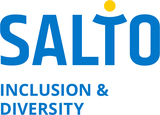Intercultural Competence Research Report
SALTO Cultural Diversity started a long-term project to investigate how to better support the development of Intercultural Competence in youth work by taking into account changes that have occurred in society in the last decades and in particular trends that will shape Europe in the next ten years.
The aim of this long-term strategy is to provide more adequate support to youth workers and youth leaders in making the development of Intercultural Competence central in their work and going beyond the traditional way of looking at culture as a static concept, but moving towards a multifaceted concept of cultures where the dynamics and nuances sometimes become predominant and essential in daily interactions and not only in youth activities.
The youth field at European level is a wide community of practitioners where consolidated tools and approaches have established themselves over the years and have greatly contributed to raising young people’s awareness of their role as citizens in Europe, thus contributing to the construction of Europe. Therefore, the transfer of knowledge is mostly done by participating in training courses and then adapting the learning outcomes to the local context with the freedom of choosing and applying what and how to pass on entirely in the hands of the youth workers and youth leaders.
Already some years ago, more and more trainers working at European level noticed that the ‘top tools and approaches’ they had been successfully using were sometimes not achieving the educational objectives they had been set for or even proved to be counter-productive, in opposition to the consolidated practice in the field. Thus an initial informal trial of new practices and informal talks about the new challenges of the changed situation in many countries in Europe have grown into a more and more consolidated awareness of the need to review the concept and practice of Intercultural Competence at European level. Several initiatives took place across Europe by different stakeholders.
This research aims at giving validity to the ‘working definition’ created for SALTO Cultural Diversity as well as linking the current practice to theory. The report elicits how far the qualities within Intercultural Competence – as defined by the Intercultural Competence working group – can be part of youth work practice, and it illustrates them with real examples to make the definition operational.
Intercultural Competence (ICC) developed and demonstrated within the framework of European youth work are qualities needed for a young person to live in contemporary and pluralistic Europe. It enables her/him to take an active role in confronting social injustice and discrimination and promote and protect human rights. ICC requires an understanding of culture as a dynamic multifaceted process. In addition, it requires an increased sense of solidarity in which individual fear of the other and insecurity are dealt with through critical thinking, empathy and tolerance of ambiguity.
Find more information about Intercultural Competence by clicking here.
We hope to stimulate some thinking and ideas around Intercultural Competence. Definitely, we do not have all the answers yet. Why not let us know what you think by using the comments box below or sending an e-mail to diversity@salto-youth.net?
This publication is freely downloadable.
Reproduction and use for non-commercial purposes is permitted provided the source www.salto-youth.net/diversity is mentioned and diversity@salto-youth.net is notified.
